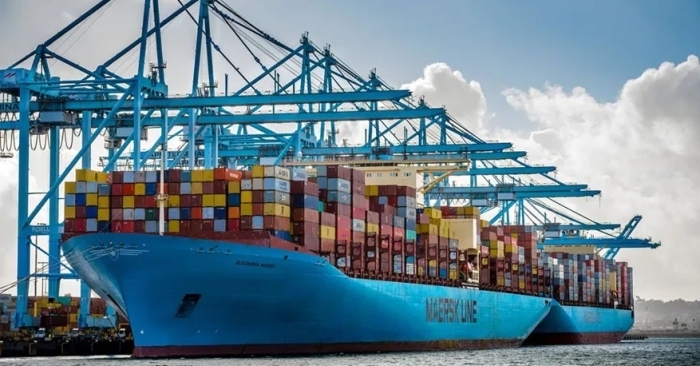Maersk resigns from ICS board, to put might behind World Shipping Council
Maersk has left the International Chamber of Shipping (ICS) for the World Shipping Council (WSC) after differing from ICS over climate policy

After a climate-driven review of its memberships was done, leading ocean carrier Maersk has recently announced its withdrawal from the board of the International Chamber of Shipping (ICS) on grounds of differences over climate policy. The decision was announced at an ICS annual general meeting that was held on June 22. ICS is among the world's leading shipowner's associations and represents around 80 percent of the world's merchant tonnage through membership.
The Danish container giant has instead decided to put its might and resources behind the liner lobby group, the World Shipping Council (WSC) which is reportedly pushing a more aggressive emissions reduction agenda.
ICS's position on decarbonisation, wherein it proposes to keep carbon regulation to IMO (International Maritime Organisation), and its slow progress on limiting greenhouse gas emissions since the Paris Climate Agreement seems to have provoked this move by Maersk and its subsequent switch in allegiance. Earlier this year, Maersk had announced its aim to reach net-zero greenhouse gas emissions across the entire business by 2040, which is one decade ahead of the initial 2050 goal.
In a statement shared by Maersk, the company noted, "We scrutinize our memberships once a year to ensure that the trade organizations of which we are members lobby in accordance with targets of the Paris Agreement and other crucial issues. Consequently, we assess if their approach and efforts reflect our attitudes and values. One outcome of the 2022 process is our decision to support the strengthening of the [carrier-focused World Shipping Council] and dedicate internal resources hereto. Our choice to step down from the ICS Board should also be seen in this context. Multi-vocal by definition, trade associations are always an expression of compromise between their members. As such, Maersk will not always be 100% aligned with their positions and retains, like any other member, its ability to choose a different path."
In sharp contrast to ICS's green goals, Maersk is following an 'ambitious' climate plan including a $450-per-tonne bunker levy to close the price gap between VLSFO (Very Low Sulphur Fuel Oils) and future fuels, and it has also flagged off a research institute in a bid to help find solutions for decarbonization and mitigate the climate crisis.
While Maersk is not directly a member of ICS, its membership was by way of it being a member of Danish Shipping. Further, senior Maersk leadership has sat on the ICS board for a decade starting in 2012. Incidentally, Maersk's decision to resign from ICS's board also points to a contentious divergence among shipowners who are under pressure to address climate change and pursue green goals more aggressively.
Meanwhile, Maersk remains a member of Danish Shipping - an ICS member association - as well as BIMCO, the Getting to Zero Coalition, WSC, and the A.P. Maersk-McKinney Moller Center for Zero Carbon Shipping, among other initiatives.



